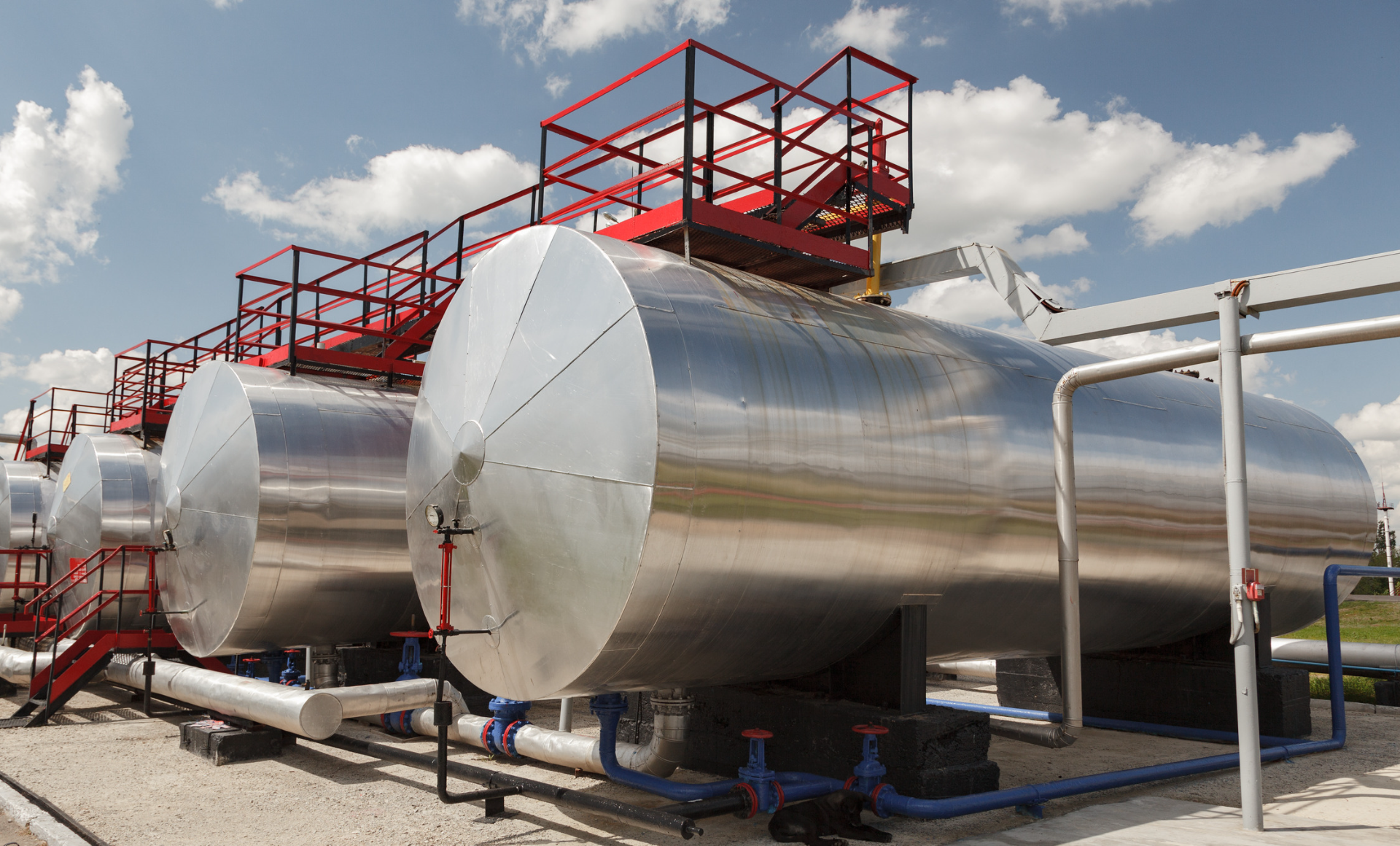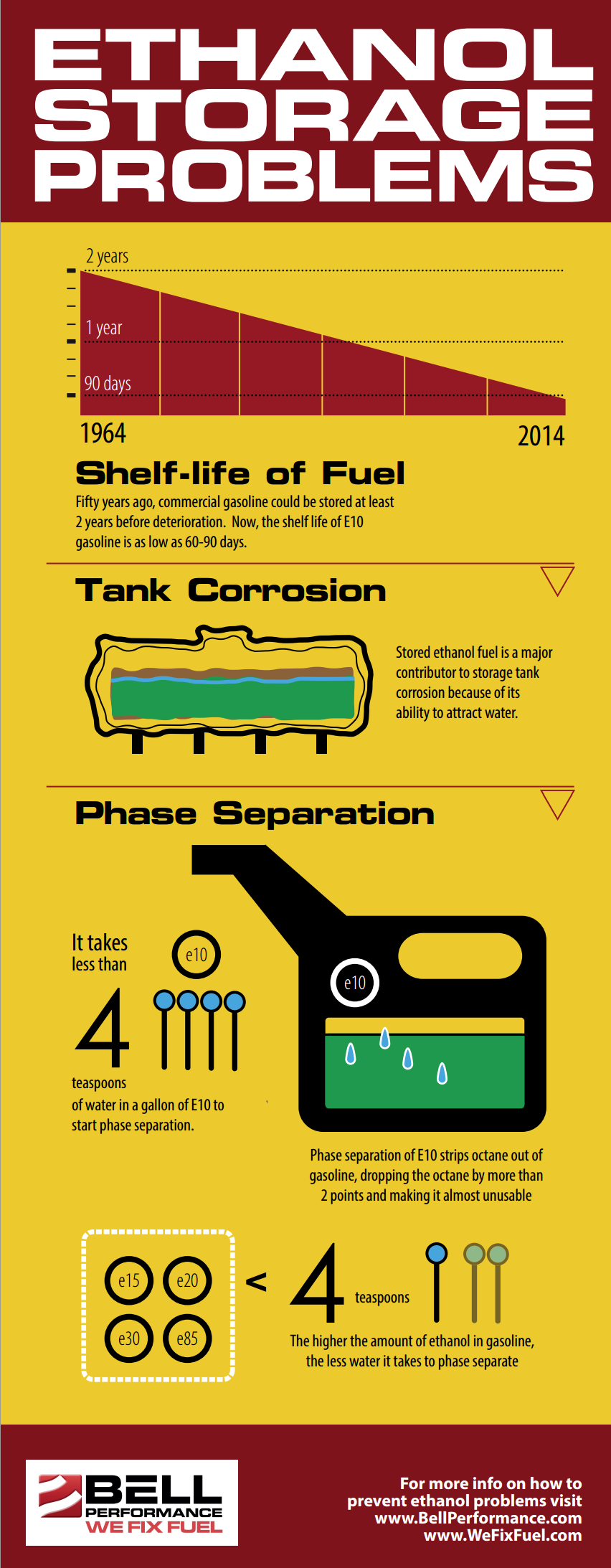Gasoline Storage
Solving & Preventing Problems with Gasoline & Fuel Storage Tanks

Gasoline doesn't tend to be stored for as long as diesel fuels are. But that doesn’t mean there aren’t concerns over changes to gasoline fuel quality while it is being stored.
Like diesel, today’s gasoline fuels are significantly different than they were in years or decades past. The biggest change in gasoline properties over the last decade has involved the addition of oxygenates (like ethanol or, formerly, MTBE) to gasoline..
Instead of finding pure gas at the pump, now consumers are finding ethanol blends containing up to 10-15% ethanol. If any of that gasoline is intended to be stored for later use, now the recommendations on how to protect that fuel in storage have changed.
Short Storage Life Doesn't Mean Problems Go Away
A shorter storage life doesn't mean gasoline's problems go away, or that problems won't develop in it during that time.
Water accumulation is a problem. For example, today’s gasolines are more likely to be adversely impacted by water accumulation in storage tanks. Water has always been an enemy of stored fuel, in no small part because microbes need it around to grow and thrive.
Phase separation in storage. Not only does water in stored gasolines contribute to that worry, it has a severe impact on phase separation in storage – the separation of gasoline and ethanol which happens when too much water impacts ethanol-blended gasoline in storage.
Phase separation strips the gasoline of octane value and can make it generally unusable.
Losing octane value. Whether or not phase separation occurs, stored gasoline can be impacted by a long-term loss of octane value over time, even if it doesn’t contain ethanol or other oxygenates. Two-strokes and small engines may not be affected so much by this phenomenon, but larger four-stroke engines and vehicles that may need to run on stored gasoline may certainly be impacted to the negative.
What To Do About These Gasoline Storage Problems
For stored gasoline, the goal is to what do whatever we can to prevent these problems from happening or delay their onset. Treating ethanol-blend gasoline from the beginning with a protectant treatment (like Ethanol Defense or Mix-I-Go) is a good start.
When phase separation occurs in a gasoline storage tank, it's often time to call in the professionals to help fix that. Some fuel additives will claim that they can reverse phase separation, but that's rarely as simple as they portray it to be. Professionals may use a treatment like DFS Plus in their processes to try to fix phase separation. It's a more involved process than putting an additive in the tank and watching the fuel come back together like it was before.







